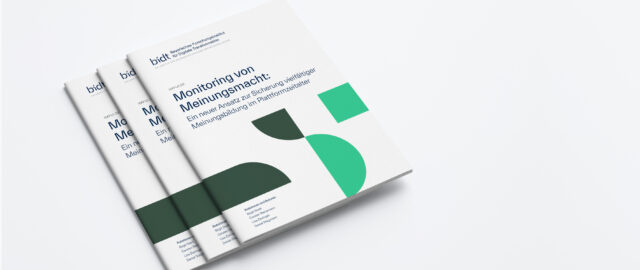The publication discusses the pros and cons of a digital ministry at the federal level. A new ministry brings advantages as a “big solution” and several problems. A “small solution” — strengthening digital policy coordination in the Federal Chancellery — might be the better alternative.
The current discussion on creating a digital ministry at the federal level seems to be less about whether and more about how. However, the “big solution” in particular, i.e. the creation of a new, independent digital ministry, is accompanied by noteworthy difficulties and dangers that are being ignored in the election campaign.
In contrast, the “small solution” of significantly upgrading the existing position of a minister of state for digital affairs in the Federal Chancellery and equipping it with tangible competencies has some practical advantages. However, this must also be accompanied by consistent digital mainstreaming in all ministries.
The most important points in brief
In the run-up to this year’s federal election, there is intense debate about creating a digital ministry at the federal level. While the Bundestag election four years ago was still about whether, the discussion is now more about how.
The voices for an independent digital ministry are just gaining ground. These are, in particular, industry associations such as Bitkom and Eco. Still, the CDU/CSU and FDP are also explicitly in favour of a department for digital transformation in their election programmes. The other parties represented in the German Bundestag have not committed themselves. Parallel to this, different patterns of digital policy responsibilities have emerged in the federal states, which do not present a uniform picture and are probably only transferable to the federal government to a limited extent.
Independent digital ministry — pros and cons
There are good reasons for establishing a separate digital ministry at the federal level:
- The current structures are only partially suitable for catching up with Germany in many areas of digitalisation.
- There is no clear delineation of competencies between the individual ministries.
Therefore, the demand to bundle these competencies through a new digital ministry is becoming louder and louder.
At the same time, there are three central arguments against the creation of an additional digital ministry:
- The new digital ministry will be too weak to make a difference.
- There is a danger that the digital ministry will fall into a competence trap because competencies cannot be clearly delineated.
- Setting it up will take a lot of time, energy, and personnel and will therefore take too long.
Advantages of a digital ministry in the Federal Chancellery
The better solution is to strengthen the already existing Minister of State for Digital Affairs position in the Federal Chancellery.
The task here would primarily be to develop and update the federal government’s digital strategy and coordinate digital policy. This is because only the Federal Chancellery has the policy competence and authority to overcome the digital policy blockades of the individual departments. Moreover, only the Federal Chancellery can create and use instruments necessary to effectively coordinate and steer digital policy as a cross-cutting issue, such as a digital budget.
Digital mainstreaming as a prerequisite
In all ministries, digitalisation should be considered in all tasks, decisions, and processes and not delegated to another house. In addition, digital competencies must be built up as a cross-cutting issue and the organisational structure must be digitally modernised.
Following the example of the private sector, a digital unit with a Chief Digital Officer (CDO) at its head should be established in each department. The CDO’s core tasks include knowing, bringing together and coordinating all digital transformation processes in the respective area of responsibility.
Germany is still in the early stages of culturally opening up the ministerial administration to these forms of organisation and management. However, this cultural change would advance digitalisation in Germany more than an additional ministry.
Conclusion
The arguments outlined here suggest that a lean digital ministry in the Federal Chancellery would work better than a newly established ministry — even though this is not such a good sell in the current election campaign.
While creating a digital ministry — if appropriately designed — can make sense at the federal level, it is also very presuppositional. In any case, we must warn against exaggerated expectations that a completely new digital ministry will usher in golden times for digital policy. Especially in the cross-cutting issue of digitisation, tension can never be resolved between sensible technical fragmentation and necessary central coordination.




